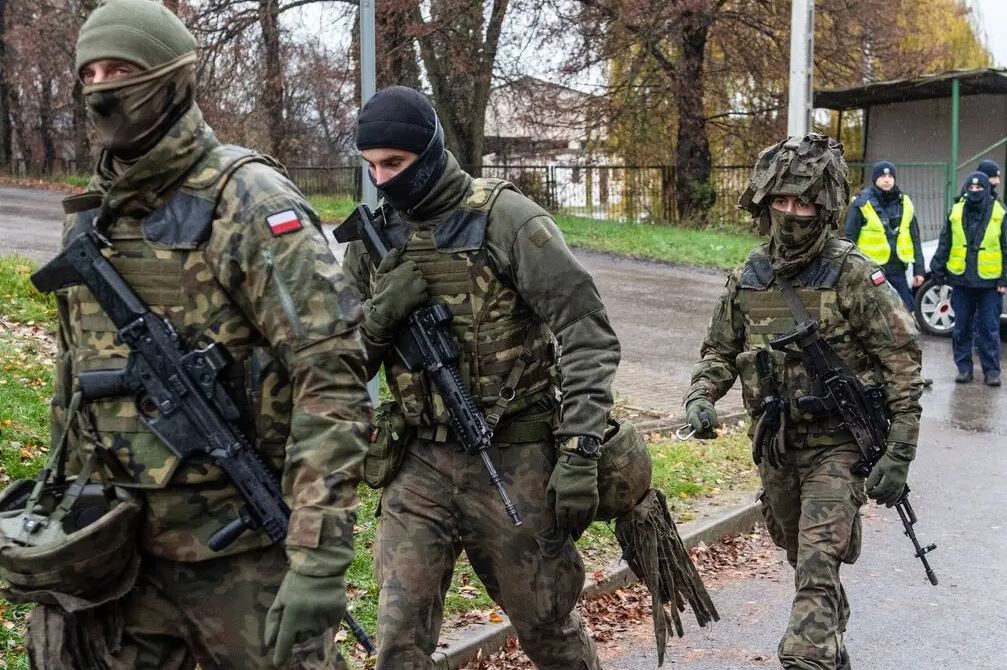Even though there is a conflict going on over the border in Ukraine, only a few kilometres away, the inhabitants of the little town of Przewodow are used to living a calm life since the settlement is among wide corn fields. There are only around 500 people who live there. Iwona Margol said that she experienced a rush of terror on Tuesday night when a missile detonated in the area.
She described the event as a quick and very loud “kaboom.” It was not apparent if we should pack our belongings, run away, or what we should do in general. Will we be able to make it through the night, and will we be here to see the morning?”
In the first few hours after the missile struck a grain silo, killing two local citizens and raising anxieties about the war spilling beyond of Ukraine, she was by no means the only one who feared that the conflict might spread beyond Ukraine. After further investigation, Western authorities have come to the conclusion that the missile was most likely launched by a Ukrainian air defence system, and not by Russia. Even if this may have helped calm anxieties throughout the world, the degree of worry in Przewodow and the surrounding area is still greater than it has been at any point since the war’s early stages.
The community, which is made up of a few brightly coloured block dwellings built in the manner of the Soviet Union, as well as a school, a grocery shop, and a farm, was surrounded by a large number of Polish troops and police officials, who prevented anyone from entering the area. There was a helicopter and many drones flying about in the sky. It was declared that there would be a period of mourning lasting for four days, and the local school would close its doors during that time. Counseling services would be provided to teachers, students, and parents.
Ms. Margol, who works as a chef in a school cafeteria, said that the explosion brought back tensions from the early days of the conflict, which prevented her from getting any sleep on Tuesday night. And not just for her; according to what she claimed, both the pupils and the staff at the school where she works are “disheartened and frightened.”
When the battle broke out next door for the first time, the locals hurried to stock up on supplies at local supermarkets and petrol stations out of fear that the fighting may spread into their neighbourhood. The presence of tens of thousands of fleeing Ukrainians at the border served as a stark reminder of how close the conflict was becoming to the civilian population.
Ms. Majewska said that local fears have significantly decreased over the last several months due to the fact that western Ukraine has been mostly spared from the war and the number of migrants has decreased to a trickle.
But then there were explosions on Tuesday. Iwona Okopinska, the proprietor of a grocery store in the adjacent town of Wisznow, said that despite the fact that there was no evidence of panic purchasing, the clients at her establishment discussed nothing else.
Both of the deceased victims were guys who worked on farms and were in their 60s. When the missile struck on Tuesday afternoon at four o’clock local time, one of the victims, a tractor driver, had just returned from the field with a cargo of maize.
Przewodow is located in one of the poorest regions of Poland, which is filled with little communities that are dispersed throughout fields and woods. Many of these settlements, including Przewodow, were formerly communal farms during the time of communism. After the fall of the Communist regime in Poland in 1989, which resulted in mass emigration to Polish cities and, after Poland joined the European Union in 2004, to Western Europe, the rural area in which it was located, along with other rural areas in Poland, experienced high levels of unemployment.
In eastern Poland, the conflict in Ukraine reawakens bitter memories of World War II, when the region was controlled by the Nazis, then the Soviets, and then by the Nazis again in that order. During that time, eastern Poland was a part of Poland. Prior to 1939, the population of the hamlet was comprised of an equal number of Poles and Ukrainians, in addition to a sizeable number of Jewish residents.
Orphan Vitalik, who is 15 years old and has mental disabilities, was among the group of forty other children with special needs who were removed from an orphanage in Zaturce, which is located in western Ukraine, during the first weeks of the conflict. As soon as he learned about the explosions, he raced to his caregivers to inquire about whether or not they needed to evacuate, and he was prepared to carry his teddy bear.
“All of their traumatic experiences came back yesterday evening,” said Piotr Zygarski, the head of the foundation known as Honor In Helping Children, which was responsible for evacuating the children to a hotel in Kaweczynek, which is approximately 60 kilometres (37 miles) away from Przewodow. The hotel is located approximately 40 miles (64 kilometres) from Przewodow.
According to Mr. Zygarski, when the youngsters came, as soon as they heard the American military warplanes that are stationed in a neighbouring town, they ran for shelter. These aeroplanes are based in the town. However, after a period of time spent receiving psychiatric treatment, they resumed acting like children their age by engaging in activities such as playing, dancing, and having fun. That was before yesterday night’s events.
Ms. Margol, who worked as a chef in the school kitchen, said that she was now very concerned about the possibility that Poland may be involved in a war. She was helping at the border crossing when shelling began in Volodymyr, a city located in western Ukraine around 50 kilometres to the east of the border.

